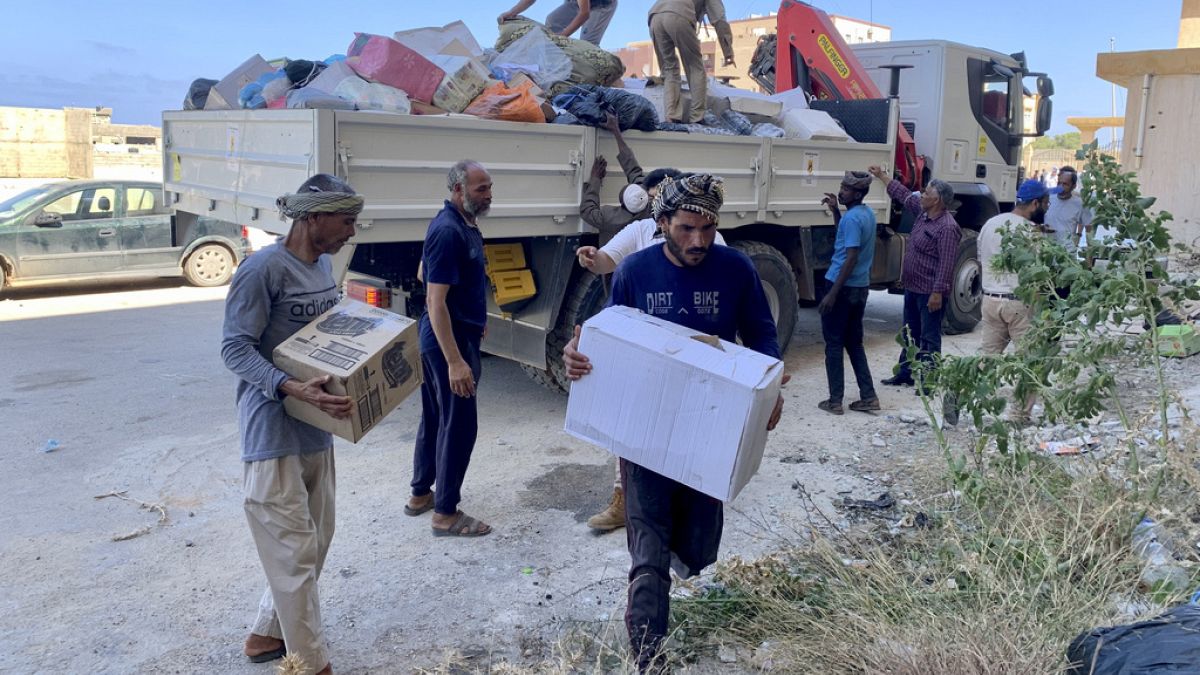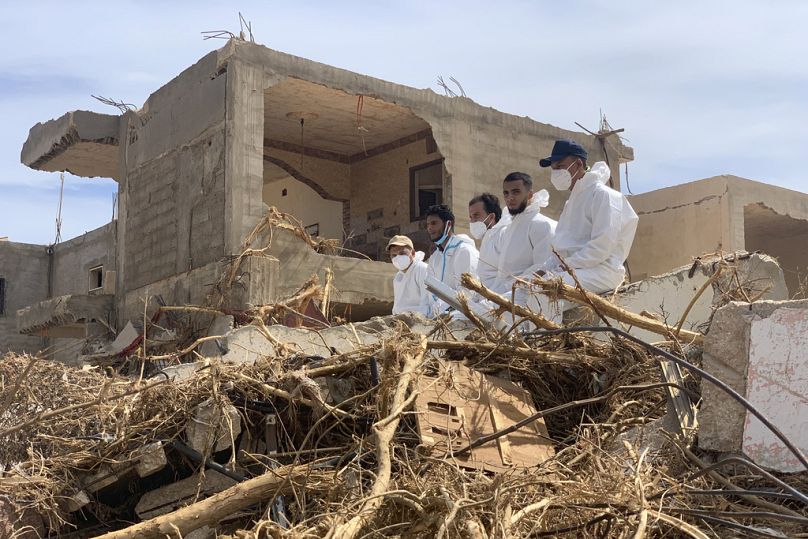For many Libyans, the collective grief over the more than 11,000 dead has morphed into a rallying cry for national unity in a country blighted by 12 years of conflict and division.
Zahra el-Gerbi wasn't expecting much of a response to her online fundraiser. Still, she felt she had to do something after four of her relatives died in the flooding that decimated the eastern Libyan city of Derna. She put out a call for donations for those displaced by the deluge.
In the first half-hour after she shared it on Facebook, the Benghazi-based clinical nutritionist said friends and strangers were already promising financial and material support.
“It's for basic needs like clothes, food and accommodation,” el-Gerbi said.
The oil-rich country has been divided between rival administrations since 2014, with an internationally recognised government in Tripoli and a rival authority in the east, where Derna is located.
Both are backed by international patrons and armed militias whose influence in the country has ballooned since a NATO-backed Arab Spring uprising toppled autocratic ruler Moammar Gadhafi in 2011. Numerous United Nations-led initiatives to bridge the divide have failed.
In the early hours of 11 September, two dams in the mountains above Derna burst, sending a wall of water two stories high into the city and sweeping entire neighbourhoods out to sea. At least 11,300 people were killed and a further 30,000 displaced.
An outpouring of support for the people of Derna followed. Residents from the nearby cities of Benghazi and Tobruk offered to put up the displaced. In Tripoli, some 1,450 kilometres west, a hospital said it would perform operations free of charge for any injured in the flood.
Ali Khalifa, an oil rig worker from Zawiya, west of Tripoli, said his cousin and a group of other men from his neighbourhood joined a convoy of vehicles heading to Derna to help out with relief efforts. Even the local scout squad participated, he said.
The sentiment was shared by 50-year-old Mohamed al-Harari.
"The wound or pain of what happened in Derna hurt all the people from western Libya to southern Libya to eastern Libya,” he said.
The disaster has fostered rare instances of the opposing administrations cooperating to help those affected. As recently as 2020, the two sides were in an all-out war. Gen. Khalifa Hifter’s forces besieged Tripoli in a yearlong failed military campaign to try to capture the capital, killing thousands.
“We have even seen some military commanders arrive from the Tripoli allied military coalition in Derna, showing support,” said Claudia Gazzini, a senior Libya analyst at International Crisis Group.
However, the distribution of aid into the city has been highly disorganised, with minimal amounts of supplies reaching flood-affected areas in the days following the disaster.
Across the country, the disaster has also exposed the shortcomings of Libya's fractured political system.
While young people and volunteers rushed to help, “there was a kind of confusion between the governments in the east and west” on what to do, said Ibrahim al-Sunwisi, a local journalist from the capital, Tripoli.
Others have levelled blame for the burst dams on government officials.
A report by a state-run audit agency in 2021 said the two dams hadn’t been maintained despite the allocation of more than €1.87 million for that purpose in 2012 and 2013. As the storm approached, authorities told people — including those in vulnerable areas — to stay indoors.
“Everyone in charge is responsible,” said Noura el-Gerbi, a journalist and activist born in Derna and a cousin of el-Gerbi, who made the call for donations online. “The next flood will be over them.”
The tragedy follows a long line of problems born from the country’s lawlessness. Most recently, in August, sporadic fighting broke out between two rival militia forces in the capital, killing at least 45 people, a reminder of the influence rogue armed groups wield across Libya.

